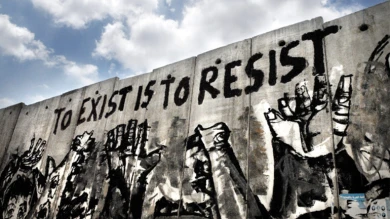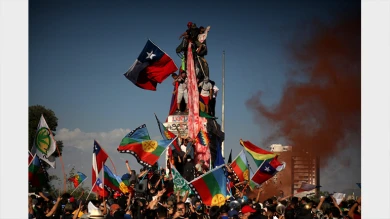-
Monday 21 and 28 September 2020 – 4pm / Zoom
Imaginaries of Revolt, Archive of Life, and Experience Reshaped from the Pandemic
Online seminar conducted by Nelly Richard
Admission: free, until full capacity is reached, with prior registration.
This seminar explores the social unrest which, from October 2019, shook Chile, causing the biggest crisis to its political system since the return to democracy in 1990. Further, it examines the different dynamics of “revolt” — disobedience, transgression, insurrection, etc. — that have occurred in this and other countries in recent times and which have been interrupted by the pandemic. Given that protests against the regime of inequality and social injustice established by neoliberal hegemony have decelerated, how can their archive be reinterpreted from confinement?

-
From14 September to 4 October 2020 – 7pm / Sabatini Building, Auditorium
Memory’s Re-volts
Documentary Film in the Aftermath of Dictatorships in Spain, Chile and Argentina
Admission: free, until full capacity is reached
By way of documentary and essay films, this series sets forth different ways of approaching memory to explore the different zones of conflict between subjectivity and politics; between militancy and revolution; between critical sexualities and gender transformations; between memory and democracy; between social defiance, constituent drives and tasks to reinvent the present.
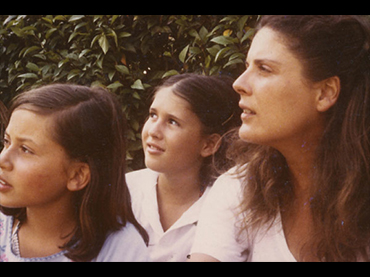
-
Tuesday, 15 September 2020 – 7pm / Zoom
Memories of a Rebel
Conversation between Carmen Castillo and Nelly Richard
Link to Zoom
Access code: 932485Chilean-born Carmen Castillo is a film-maker and former activist in MIR (Revolutionary Left Movement). Exiled in Paris during the years of the military dictatorship, she shot a number of films that thread together a unique and powerful body of work that eschews nostalgia and hegemonic narratives. Moreover, Castillo continually probes the nature of political commitment and the possibilities of realigning the “world’s deadly path”.
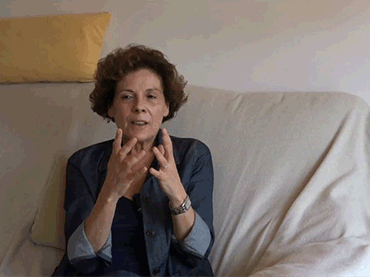
-
Thursday, 8 October 2020 – 7pm / Zoom
The Powers of Memory in the Little Things
A lecture by Judith Butler
Admission: free, until full capacity is reached
To close out this new edition of the Chair, Judith Butler gives a lecture on the idea of memory outside hegemonic readings of history, drawing from mottos/slogans, poems, posters, excerpts from texts, and materials that look to concisely transmit something lost from the past.
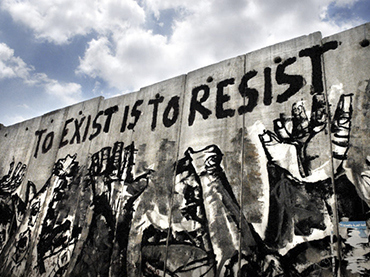
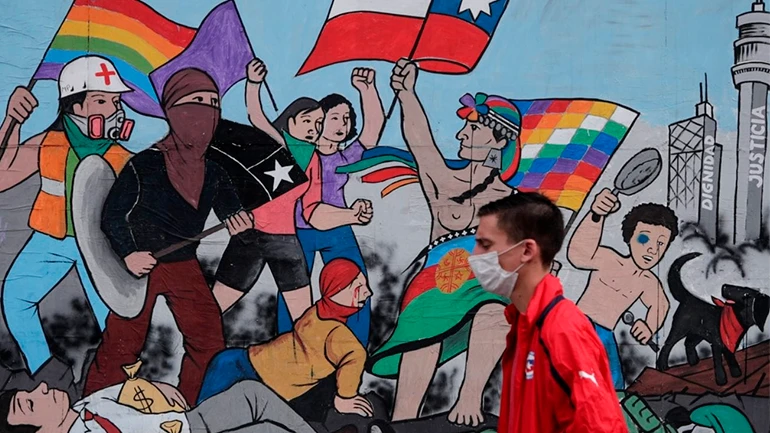
Held on 14, 15, 21, 21, 28, 28 Sep, 08 Oct 2020
Curated by Chilean theorist Nelly Richard, the Politics and Aesthetics of Memory Chair articulates different initiatives of training, research and public activities in the Museo Reina Sofía. This programme of analysis and reflection — put together at the crossroads between the aesthetic, the theoretical, the critical and the political — conceives of memory as an agent with which to decipher and re-read incomplete narratives, the fragments and scenes of which continue to question the present; memory that transmits the expressive power of struggles and frustrations, becoming renewed aspirations for change.
The social uprisings surfacing across the globe, the crisis to the capitalist system laid bare by the COVID-19 pandemic and the exceptional situations that modify as much the behaviour of States as the social order, presented to us as democracy, form today’s grounds to reflect on bodies and the economy, life and capital, destruction and preservation, subjectivity and institutionality, violence and language, memories of experience and creative imagination.
On this occasion, the Chair programme comprises a two-session online seminar, conducted by Nelly Richard, a film series subdivided into five programmes, including a conversation between film-maker Carmen Castillo and Nelly Richard, and a closing lecture by Judith Butler.
Education programme developed with the sponsorship of the
Comisariado
Nelly Richard
Línea-fuerza
Políticas y estéticas de la memoria
Educational program developed with the sponsorship of

Más actividades

Difficulty. Forms and Political Effects of Deviation in Writing and Contemporary Art
23 February – 14 December 2026 – Check programme
Difficulty. Forms and Political Effects of Deviation in Writing and Contemporary Art is a study group aligned towards thinking about how certain contemporary artistic and cultural practices resist the referentiality that dominates the logics of production and the consumption of present-day art. At the centre of this proposal are the concepts of difficulty and deviation, under which it brings together any procedure capable of preventing artistic forms from being absorbed by a meaning that appears previous to and independent from its expression. By ensuring the perceptibility of their languages, difficulty invites us to think of meaning as the effect of a signifying tension; that is, as a productive and creative activity which, from the materiality of art objects, frees aesthetic experience from the representational mandate and those who participate in it from the passiveness associated with tasks of mimesis and decoding.
The economy of the referential norm translates the social logic of capitalism, where insidious forms of capturing subjectivity and meaning operate. In the early 1980s, and adopting a Marxist framework, poet Ron Silliman highlighted how this logic entailed separating language from any mark, gesture, script, form or syntax that might link it to the conditions of its production, rendering it fetichised (as if without a subject) and alienating its users in a use for which they are not responsible. This double dispossession encodes the political strategy of referential objectivity: with no subject and no trace of its own consistency, language is merely an object, that reality in which it disappears.
The political uses of referentiality, more sophisticated today than ever before, sustain the neoliberal-extractivist phase of capitalism that crosses through present-day societies politically, economically and aesthetically. Against them, fugitive artistic practices emerge which, drawing from Black and Queer studies and other subaltern critical positions, reject the objective limits of what exists, invent forms to name what lies outside what has already been named, and return to subjects the capacity to participate in processes of emission and interpretation.
Read from the standpoint of artistic work, the objective capture of referentiality may be called transparency. Viewed from a social contract that reproduces inequality in fixed identity positions, transparent in this objectivity are, precisely, the discourses that maintain the status quo of domination. Opposite the inferno of these discourses, this group aims to collectively explore, through deviant or fugitive works, the paradise of language that Monique Wittig encountered in the estranged practices of literature. For the political potency of difficulty — that is, its contribution to the utopia of a free language among equals — depends on making visible, first, its own deviations; from there, the norm that those deviations transgress; and finally, the narrowness of a norm which in no way exhausts the possibilities ofsaying, signifying, referring and producing a world.
From this denouncement of referential alienation, fetishisation and capture, Difficulty. Forms and Political Effects of Deviation in Writing and Contemporary Art turns its attention to the strategies of resistance deployed by contemporary artists and poets. Its interest is directed towards proposals as evidently difficult or evasive as those of Gertrude Stein, Lyn Hejinian, Theresa Hak Kyung Cha, Kameelah Janan Rasheed, Kathy Acker, María Salgado and Ricardo Carreira, and as seemingly simple as those of Fernanda Laguna, Felix Gonzalez Torres and Cecilia Vicuña, among other examples that can be added according to the desires and dynamics of the group.
The ten study group sessions, held between February and December, combine theoretical seminars, work with artworks from the Museo Reina Sofía’s Collections and exhibitions, reading workshops and public programs. All these formats serve as spaces of encounter to think commonly about certain problems of poetics — that is, certain political questions — of contemporary writing and art.
Difficulty. Forms and Political Effects of Deviation in Writing and Contemporary Art inaugurates the research line Goodbye, Representation, through which the Museo Reina Sofía’s Studies Directorship seeks to explore the emergence of contemporary artistic and cultural practices which move away from representation as a dominant aesthetic-political strategy and redirect their attention toward artistic languages that question the tendency to point, name and fix, advocating instead for fugitive aesthetics. Over its three-year duration, this research line materializes in study groups, seminars, screenings and other forms of public programming.

27th Contemporary Art Conservation Conference
Wednesday, 4, and Thursday, 5 March 2026
The 27th Contemporary Art Conservation Conference, organised by the Museo Reina Sofía’s Department of Conservation and Restoration, with the sponsorship of the Mapfre Foundation, is held on 4 and 5 March 2026. This international encounter sets out to share and debate experience and research, open new channels of study and reflect on conservation and the professional practice of restorers.
This edition will be held with in-person and online attendance formats, occurring simultaneously, via twenty-minute interventions followed by a five-minute Q&A.
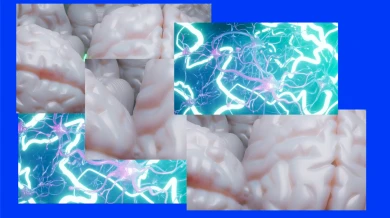
Cultural Work
Thursday, 12 February 2026 – 5:30pm
This series is organised by equipoMotor, a group of teenagers, young people and older people who have participated in the Museo Reina Sofía’s previous community education projects, and is structured around four themed blocks that pivot on the monstrous.
Session number two looks to approach film as a place from which cultural work is made visible and processes of production engage in dialogue with artistic creation. From this premise, the session focuses on exploring how audiovisual content is produced, assembled and distributed, from the hands that handle the images to the bodies that participate in its circulation. The aim is to reflect on the invisible effort, precarity and forms of collaboration that uphold cultural life, that transform the filmic experience into an act that recognises and cares for common work.

Alberto Greco. Viva el arte vivo
Tuesday, 10 February 2026 – 7pm
In conjunction with the opening of the exhibition Alberto Greco. Viva el arte vivo, Fernando Davis, the show’s curator, and Amanda de la Garza, the Museo Reina Sofía’s deputy artist director, will converse in the Nouvel Building’s Auditorium 400 on the life and work of the Argentinian artist, a core figure in experimental avant-garde art.
The title of both exhibition and conversation originates from the proclamation “Long Live Arte Vivo” Alberto Greco (Buenos Aires, 1931— Barcelona, 1965) disseminated around the streets and on the walls of Rome. For Greco, arte vivo was an art of the future, an art based on a set of irreverent and untimely gestures, of adventures open to unpredictability melding with life, and which began in 1962, prior to his coining of the term “vivo-dito”. In his Manifiesto dito dell´arte vivo (Dito Arte-Vivo Manifesto), which he pasted on the walls of Genoa, Greco encouraged new contact “with the living elements of our reality: movement, time, people, conversations, smells, rumours, places, situations”. He would also burst into the everyday of Madrid’s streets as he convened a “vivo-dito moment”, culminating in the burning of a canvas painted collectively in Madrid’s Lavapiés neighbourhood.
In addition to founding arte vivo, Alberto Greco was an informalist painter, a queer flâneur, a poet and sometime actor. This intense journey of Greco’s life and art is closely connected to the migrant route he embarked upon in 1950 in Buenos Aires, taking in Atacama and Humahuaca, Paris, Rio de Janeiro, São Paulo, Genoa, Rome, Madrid, Piedralaves, New York and Ibiza and ending abruptly in Barcelona, where he took his own life shortly after writing his final great work, the novel Besos brujos (Bewitching Kisses, 1965).
These inaugural conversations, part of the main working strands of the Museo’s Public Programmes Area, aim to explore in greater depth the exhibition narratives of the shows organised by the Museo from the perspective of artists, curators and specialists.
![Basel Abbas y Ruanne Abou-Rahme, At Those Terrifying Frontiers Where the Existence and Disappearance of People Fade Into Each Other [En esas fronteras aterradoras donde la existencia y la desaparición de personas se disuelven entre sí], 2019](https://recursos.museoreinasofia.es/styles/small_landscape/public/Colecci%C3%B3n/abbasabourahme.png.webp)
Gaza and Aestheticide
Tuesday February 10, 2026 – 16:00 h
“This seminar examines the systematic destruction of Palestinian collective sensibility — what we might call ‛aestheticide’ — that has accompanied Israel’s genocide and ecocide in Gaza, and considers the conditions of artistic practice in its aftermath. Over more than two years, the demolition of universities, archives, museums, and libraries has not only erased cultural and intellectual infrastructure but has also targeted the very possibility of representation itself. The destruction of a people has been accompanied by the destruction of their image, their history, and their capacity to be known: reportage, scholarship, and cultural memory have been deliberately undermined, with media institutions, universities, and museums often complicit in this repression. Gaza consequently functions as a rehearsal space for a possible global future — of fascism, post-liberal authoritarianism, militarized borders, and AI-enabled warfare —, a laboratory for an emerging world order. What, then, becomes of critical analysis and resistance under these conditions? And what becomes of aesthetics and politics?”
—T.J. DemosThis seminar takes place thanks to the art historian’s invitation to Spain by the Miró Foundation. In the context of the museum, it engages in dialogue with a broader line of work on the climate emergency and decolonial perspectives developed within the Museum of the Commons project (2023–2026) of the L’Internationale network, of which the Museo Reina Sofía is a member; as well as with some of the questions that animate the study group Aesthetics of Peace and Desertion Tactics. Finally, it is also embedded in a wider strategy of support for and commitment to the artistic and discursive practices of Palestinian artists and cultural practitioners, most clearly reflected in the TEJA network.

